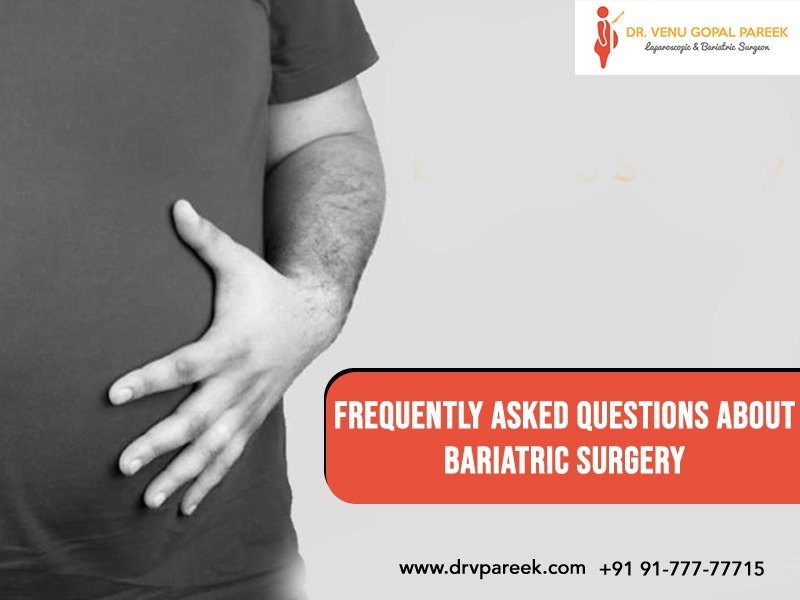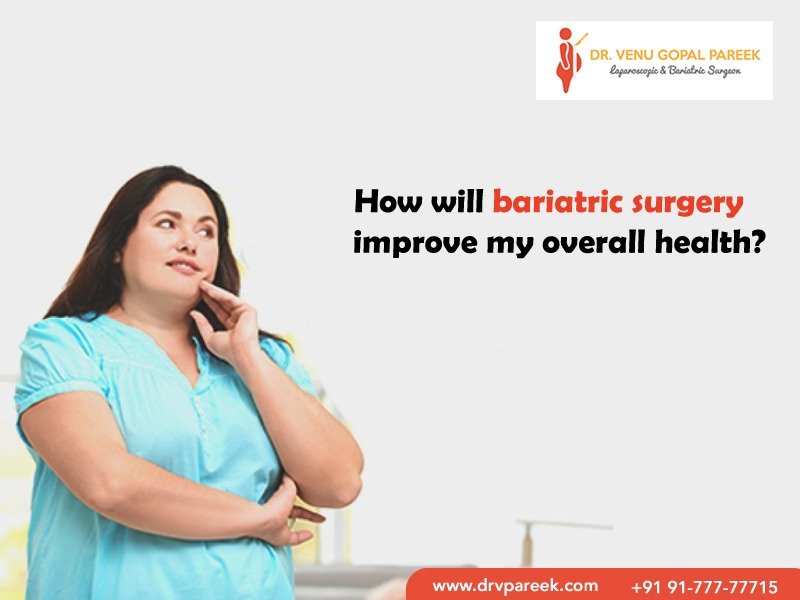
How Will Weight Loss Surgery Help Me Lose Weight?
Weight loss surgery or Bariatric Surgery not only serves cosmetic purposes, but it helps patients overcome health problems like Diabetes, Heart diseases, joint pains, and back pain, to name a few. The word Bariatric like many other medical terms is derived from the Greek words “baros,” which means “weight” and “iatrikos,” meaning “medicine.” Bariatric surgery is a surgical procedure opted by patients whose Body Mass Index (BMI) is greater than 35.
Who should go for Weight Loss Surgery?
Weight gain happens when more calories are consumed than the body uses through its normal functions, i.e.basal metabolic rate, and physical activity. These non-consumed calories are stored as fat.
However, you don’t have to consider bariatric surgery right away. Instead, talk to your doctor and make sufficient efforts to lose weight by altering diet and regular exercise. But remember, “do not starve yourself.” Since starving lowers the metabolism further, resulting in further weight gain.
If any of your efforts are unsuccessful and your BMI is 35 or higher, you can consider bariatric surgery. If you are already suffering from high blood pressure, sleep apnea, or type 2 diabetes, then even for a BMI of 30, you can consider the surgery. An extensive screening process is done by a dietitian, psychologist, and surgeon to determine the need for bariatric surgery.

How does Bariatric Surgery help you lose weight?
The main aim of any bariatric surgery is to modify the stomach and intestines to treat obesity and its related diseases. There are mainly 2 aspects in a bariatric surgery
- Make the stomach smaller
- Bypass a portion of the intestine.
After making these changes, the food intake is reduced, and the body’s food absorption pattern changes. As a result, hunger reduces, and the sense of fullness increases. This is how a healthy weight is achieved.
Bariatric surgeries are amongst the most advanced studies of modern medicine in the last decade. Small incisions are made by the latest minimally invasive surgical techniques, i.e., Laparoscopic or Robotic surgery. In these minimally invasive procedures, patients experience less pain, fewer complications, shorter hospital stays, and a faster recovery.
The most common Bariatric procedures are listed and explained below. Each surgery has its advantages and potential drawbacks. After carefully evaluating our highly experienced Dr Venugopal Pareek and his team, an appropriate surgery is selected for you.
Sleeve Gastrectomy
In Laparoscopic Sleeve Gastrectomy, approximately 80% of the stomach is removed using surgical staplers. This is a technically simpler procedure that is performed as the first step for patients with severe obesity. The leftover stomach is banana-shaped and holds lesser food. So the calorie intake reduces. The part of the stomach that produces the “hunger hormone,” is removed; hence metabolism is altered. The procedure is technically simple and has a shorter surgery time, and this is one of the most effective surgeries to cure obesity-related conditions.
Roux-en-Y Gastric Bypass (RYGB)
The Roux-en-Y Gastric Bypass often called the “gastric bypass,” is one of the oldest procedures and is a reliable and long-lasting weight loss procedure. In this procedure, the stomach is divided into a smaller top portion like a pouch. The small intestine is also divided. The divided stomach and small intestine are connected for food to pass. The small bowel segment which empties the larger stomach is connected to the small bowel. The resulting bowel connection resembles the shape of the letter Y. The larger part of the stomach is bypassed, and hence very little food is stored. Most importantly, modifying the food course profoundly decreases hunger, increases fullness, and thus helps maintain a healthy weight. The impact on hormones and metabolic changes improves the diabetic condition even before any weight loss occurs.

Adjustable Gastric Band (AGB)
An Adjustable Gastric Band is a silicone device placed on the stomach’s top part, creating a small pouch above the band. Food intake is dependent on the opening size between the pouch and the rest of the stomach. The size of the opening can be adjusted with fluid injections through a port underneath the skin. As compared to other procedures, this has a moderate effect on type 2 diabetes and metabolic changes.
Biliopancreatic Diversion with Duodenal Switch
A tube-shaped stomach pouch is created, similar to the sleeve gastrectomy. After this, the first portion of the small intestine is separated from the stomach. Then, a part of the small intestine is brought up and connected to the outlet of the newly created stomach. As a result, the food goes through the sleeve pouch and into the latter part of the small intestine when the patient eats. Since the stomach size is smaller, the patients eat less. In this process, the food bypasses roughly 75% of the small intestine, which is the highest of any other procedure. But it also means a major decrease in the absorption of calories and nutrients. Hence patients must take vitamins and mineral supplements after surgery.
After going through all the procedures, you might have understood that Bariatric Surgery is an effective and time-tested surgery for weight loss. However, for the surgery to be completely successful, the patient must make required lifestyle changes, and otherwise, they will be at risk of gaining weight again. Dr Venugopal Pareek will fully brief you on post-surgical lifestyle changes. Do have a detailed discussion before undergoing surgery. To know more about Bariatric Surgery and make an informed decision, please contact Dr Venugopal Pareek at 91-777-77715 or email drvenupareek@gmail.com.







